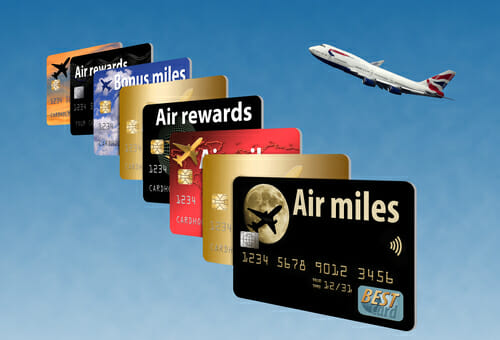 {Read in 5 minutes} During the course of my career, I’ve seen people accumulate all different types of assets. Some of them are predictable such as cash, securities, and real estate; others, not so much.
{Read in 5 minutes} During the course of my career, I’ve seen people accumulate all different types of assets. Some of them are predictable such as cash, securities, and real estate; others, not so much.
One of the things that most people have, but tend not to know what to do with, is airline frequent flyer miles. What are we talking about here? Reward and loyalty programs offering points or bonuses that can be traded for upgrades or flights, used by most airlines to reward their most frequent customers. Very often, these sorts of awards are linked to a credit card so that even beyond flying on the particular airline, the customer can accumulate miles by using their credit card for purposes of every day expenses.
The amount of miles that someone can acquire during their lifetime is simply staggering. It is not uncommon for people who use their credit card frequently to travel great distances, even several times a year, in premium cabins (first class, business class) paying only minimal fees to redeem their miles. For example, it may cost a customer 200,000 – 300,000 miles to fly round-trip first class to another continent.
When you think about it, these miles have an actual value, even though most airlines will tell you that the points or miles earned in their reward programs actually have no legal value at all. That said, the value of that trip is something that one can easily calculate by attempting to book the same flight paying with a debit card. Unfortunately, this creates an issue when somebody wishes to pass on their miles after they die.
How does one transfer these accumulated miles to the beneficiaries of an estate? First, assuming that the Surrogate’s Court has probated a Will, the Executor or the Administrator is generally charged with collecting the assets of the Estate. Again, traditional assets are easy. Go to the bank and present Letters to close out the bank account, clean out the safe deposit box, or sell the real property that belongs to the Estate.
However, what happens with frequent flyer miles? Well, the official policy of the airlines, as mentioned above, is that they have no value and cannot be transferred upon the death of the program participants. For those of you that love legal fine print, you can find the information on their websites:
United (see paragraph 7),
Delta (see “restrictions on transfer”),
American (see “Earning AA Advantage Miles”, bullet 2),
Southwest, and
JetBlue (see paragraph 12.1).
(I’m an attorney with two law degrees and even I don’t like fine print. I thought this article’s topic was interesting but sort of cursed you all for making me spend the afternoon reading airline fine print!)
Officially, if they have no value and cannot be transferred, does that mean that the airline miles/points and all of the benefits that come with them, die with the loyalty program member? Maybe.
I think most people will find that between the official policy and what people intend to do, there’s often a middle ground, and a polite-but-firm telephone call to the airlines customer service departments will allow a person to transfer the miles. Many of the airlines mentioned above even have pre-printed forms to transfer these frequent flyer miles upon death despite the fact that their own websites say that you cannot transfer them upon death. It never hurts to ask: asking to speak to a supervisor, and a smile (or whatever the equivalent of a smile is on the telephone) can get you a long way. In fact, all but one of the airlines that I’ve mentioned above have documented cases of allowing the transfer of frequent flyer miles upon the submission of papers, a death certificate, and sometimes, the payment of a small fee.
Also there are many frequent flyer communities that will give you tips and buzzwords as to what to say to the representative to help ease your request through.
Finally, remember it is important for a person writing their Will to let their potential Executor know about the existence of these airline miles. Otherwise the Executor may forget to transfer them. As mentioned here, an informed Executor is an estate beneficiary’s best friend.
For more information on this topic, please contact me.

